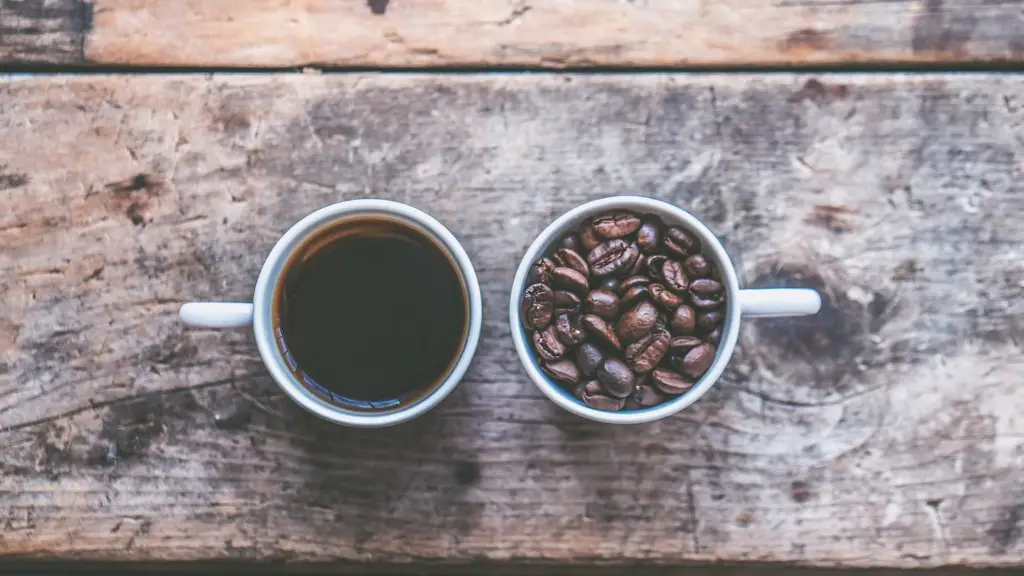Overview
Drinking coffee is a ritual for many, but depends on the time of day it is consumed, as well as the individual’s metabolism and caffeine sensitivity. In general, it is advised that drinking coffee should be avoided close to bedtime, as it can interfere with sleep. This article provides an overview of the negative effects of drinking coffee before bed, and explains why it should be generally avoided.
Caffeine Sensitivity
Caffeine is a stimulant drug, and the amount of caffeine people are sensitive to can vary significantly. Caffeine sensitivity is largely dependent on genetics, and can range from highly sensitive to relatively immune. Depending on the individual, simply drinking coffee close to bedtime can disrupt sleep.
Not only does the amount of caffeine in a cup of coffee vary from person to person, it can also vary from one cup of coffee to another. The size of the cup also matters, and it’s important to consider how much caffeine is in one cup when drinking coffee close to bedtime.
Adverse Effects on Sleep
When it comes to consuming coffee before bedtime, the main concern is that it can affect sleep. Caffeine has an effect on the body’s sleep-wake cycle, and can interfere with the body’s natural circadian rhythms. When taken late in the day, it can lead to difficulty falling asleep and can also cause sleep disturbances throughout the night.
In addition to disrupting sleep cycles, research has also shown that caffeine can affect the body’s stress hormones. When the body experiences stress, it releases cortisol, the hormone responsible for regulating the body’s wake-sleep cycles. Consuming caffeine shortly before bed can disrupt the balance of cortisol, leading to further sleep problems.
Best Practices for Consumption
Given the potential adverse effects of consuming coffee late in the day, it is best practice to refrain from drinking it within four hours of bedtime. This should give the body enough time to metabolize the caffeine and return to its natural sleep-wake cycle.
However, the exact amount of time will vary between individuals depending on their caffeine sensitivity and metabolism. For some people, drinking coffee six hours before bedtime may be too close and still lead to disrupted sleep. It is important to experiment with different times and find out what works best for your body.
Risks of Consuming Too Much Caffeine
In addition to the effect on sleep quality, drinking too much coffee can also lead to other health problems. Drinking large amounts of caffeine can interfere with the body’s natural sleep cycle and can also lead to increased stress levels. Consuming caffeine late in the day can also affect digestive processes, as well as energy levels. Therefore, it is important to be mindful of the amount of coffee consumed and be aware of the potential risks.
Alternative Beverages
If you find yourself feeling tired and wanting something to give you a boost of energy, there are alternatives to coffee. Tea is one of the most popular alternatives and has many beneficial effects on the body, including improved digestion and increased alertness. Herbal teas are especially beneficial as they are generally caffeine-free and can help promote relaxation.
Another potential alternative is sparkling water. This is a refreshing and hydrating beverage that can provide a boost of energy and can improve mood. It also helps the body flush out toxins and can improve digestion.
Caffeinated Beverages to Avoid
It is important to be aware of the potential risks of consuming too much caffeine. Consuming energy drinks, soft drinks, and other caffeinated beverages can have the same negative effects on sleep as coffee. These beverages are generally high in sugar and caffeine and should be limited or avoided.
It is also important to pay attention to hidden sources of caffeine. Certain foods, such as chocolate and ice cream, contain small amounts of caffeine and can affect sleep if consumed late in the day. Therefore, it is important to be mindful of your caffeine intake and limit the amount of caffeinated beverages or foods consumed.
Healthier Alternatives to Caffeine
If you find yourself needing a boost of energy, there are healthier alternatives to caffeine. Exercise, for example, can provide an energy boost and can also help improve mood and focus. Eating a balanced diet can also provide a steady supply of energy throughout the day, and can help reduce the need for caffeine.
In addition, getting adequate sleep is one of the most important things for staying energized and feeling well. Aim for seven to nine hours of sleep each night and try to establish a consistent sleep-wake cycle. This can help reduce the need for caffeine and will help keep your energy levels up during the day.
Caffeine Withdrawal Symptoms
If you are reducing your caffeine intake, be aware that you may experience some withdrawal symptoms, including headaches, fatigue, and difficulty concentrating. These symptoms should pass within a few days, and are typically mild. However, if these symptoms become severe or persistent, it’s important to talk to a health care provider.
It is also important to have a plan in place for reducing caffeine intake. It is generally recommended to gradually reduce intake over a period of weeks, rather than cutting it out completely overnight. This will help minimize withdrawal symptoms and make the transition to a caffeine-free lifestyle easier.
Lifestyle Changes to Support Caffeine Reduction
In order to reduce caffeine intake, it is important to make lifestyle changes to support this goal. Avoiding caffeinated beverages and foods can help, as well as establishing regular sleep habits. Exercise and stress management techniques, such as yoga and meditation, can also help increase energy levels and improve mood.
It is also important to be mindful of your caffeine intake and be aware of how it affects your sleep. Paying attention to how your body responds to different types of caffeine is key to finding the right balance. Finding healthier alternatives to caffeine can also help, and can provide a sustained energy boost throughout the day.




